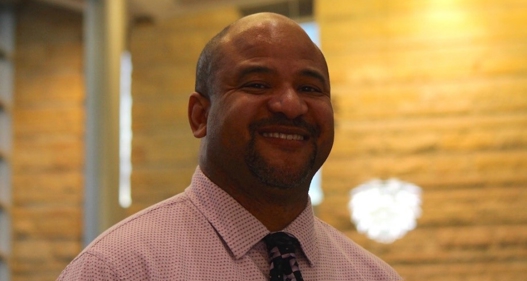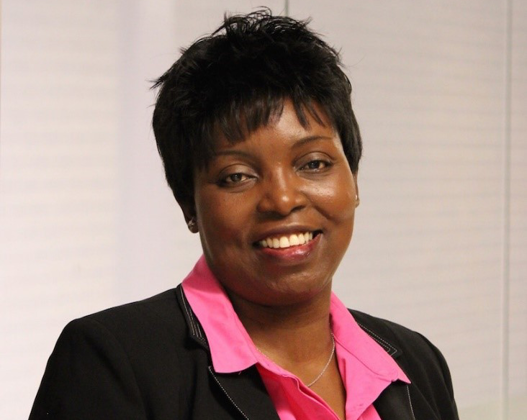Leadership Opportunities
Executive Leadership Academy (ELA)
Each year, the President’s Commission on Diversity at Minnesota State University, Mankato selects one faculty member who desires to move into a higher education leadership role to attend the University of Berkeley Executive Leadership Academy (ELA). The Commission is currently seeking candidates to attend ELA in July 2018.
Entering its seventh year, ELA has graduated 200 fellows. They have different backgrounds and come from different states or countries, but they all desire to become a university director, dean, provost, or president. They attend the intensive five-day academy and receive a certificate in executive leadership.
Learn more about the Berkeley Executive Leadership Program
Announcements about applications will be featured here.
If you have questions, please email us at commissionondiversity@mnsu.edu.
Previous ELA Fellows

Dr. Timothy Berry
A brick shattered the school bus window in front of Timothy Berry. The crowd pressed against the bus. They threw more bricks. That day in 1975, Berry was eight years old. It was his first day of third grade, his first time riding the bus to an integrated school.
He had felt excited when his mother said attending this school proved he was as good as any other kid. Now he just felt terrified.
“You think you’re going to die,” said Dr. Berry, assistant professor of educational leadership. “So I was impacted from that day forward about structural barriers.”
That day followed Berry, even to the Executive Leadership Academy in March 2015, hosted by the Center for Studies in Higher Education at the University of California, Berkeley. Each year, the President’s Commission on Diversity at Minnesota State University, Mankato selects one faculty member who desires to move into a higher education leadership role to attend ELA. The Commission is currently looking for candidates to attend ELA in either March or July 2016.
Entering its sixth year, ELA has graduated 170 fellows. They have different backgrounds and come from different states or countries, but they all desire to become a university director, dean, provost, or president. They attend the intensive five-day academy and receive a certificate in executive leadership.
“With a distinguished faculty team and an outstanding multicultural curriculum, ELA continues to prepare visionary higher education leaders to guide their institutions in an increasingly multinational environment,” said Dr. Josefina Baltodano, ELA’s founder and executive director, in a statement.

Dr. Agnes Adhiambo Odinga-Oluoch
Dr. Agnes Adhiambo Odinga-Oluoch, Minnesota State University, Mankato’s first ELA Fellow, said the academy provided hands-on training and knowledge about navigating into—and succeeding in—higher education leadership. Having earned an MBA a few years prior, she saw ELA as a way to learn about applying her business knowledge to higher education.
“As a teacher, I’ve come to realize there is a lot of learning that occurs in a classroom that is not captured in textbooks, and I got that opportunity by attending,” said Odinga-Oluoch, who teaches in the History Department.
ELA’s running theme is “Leading in a Global and Multicultural Environment,” which resonated with Odinga-Oluoch. Born in Kenya, she studied history as an undergraduate because the government chose students' majors. After graduation, the Kenyan government paid for a handful of top-performing students—including her—to complete master's degrees in education to succeed the country's aging academics.
"We don't call them old," she said. "We call them wise people."
She then came to the United States to complete her doctorate at the University of Minnesota.
Beginning her eighth year teaching at Minnesota State University, Mankato, Odinga-Oluoch would like to move into leadership to shed a light on issues international students face.
“When I walk around, it is very different from the Minnesota State University I came to seven years ago,” she said. “I see a lot of students from around the world, which is nice, but if you’ve never lived that life, it is very hard to understand it.”
“Being in leadership in an institution is only one aspect of your life,” Odinga-Oluoch said. “These other aspects of your life—your professional affiliations, your family life, and leisure—are equally important, because that makes you whole.”
Also, be prepared to meet people and make friends, Odinga-Oluoch said. At ELA in March 2014, she met, for the first time in person, the professor from UC Berkeley who facilitated her move to the U.S. years ago, making her experience more significant.
With this experience, Odinga-Oluoch hopes to move into leadership to champion multicultural issues in higher education, which continues to grow more diverse, she said.
“If you’re going to be managing a diverse community, you might as well also have leaders who are diverse,” she said. “So I saw it as an opportunity to begin honing my skills so that when a certain opportunity presents itself, I’ll be in a position to take advantage of that.

